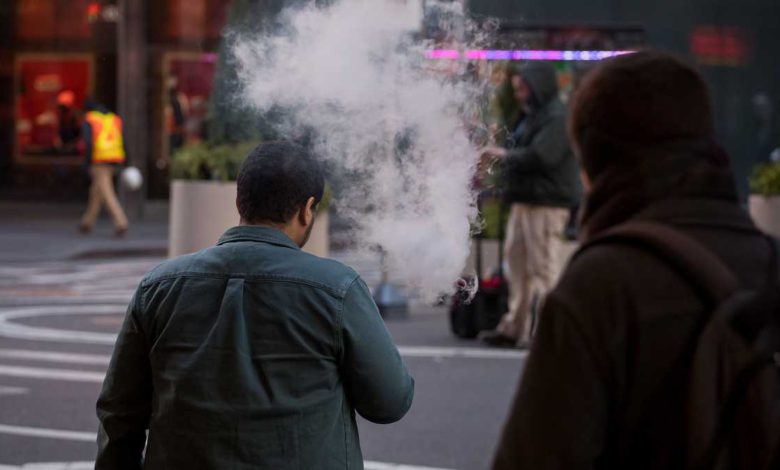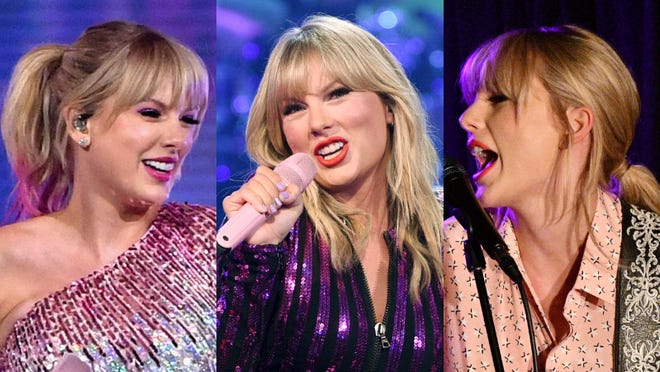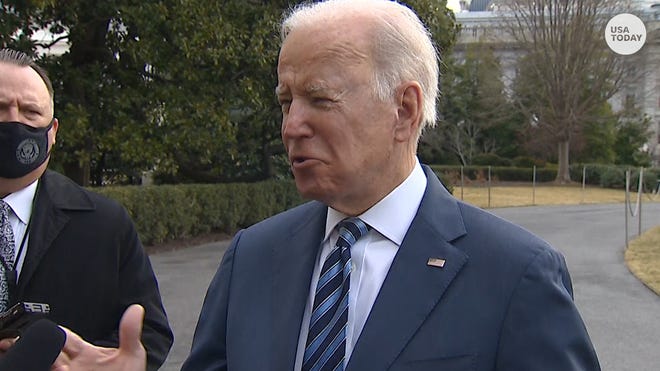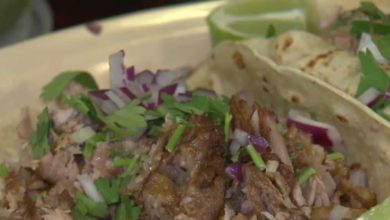

Related video above: Juul to pay $40M in teen vaping suit settlementThe U.S. Food and Drug Administration blocked the sale of more than 55,000 flavored e-cigarette products Thursday, its first ban of e-cigarette products since it began requiring makers to apply for premarket review last September.The FDA issued marketing denial orders for the electronic nicotine delivery system (ENDS) products, saying they pose a public health threat to youth in the U.S. Of the more than 55,000 products impacted by the decision, those not yet being sold may not be introduced into the market, and those already on the market must be removed or risk enforcement.Advocates complained the action did not cover big name products such as Juul, but the agency said more decisions are coming."Ensuring new tobacco products undergo an evaluation by the FDA is a critical part of our aim to reduce tobacco-related disease and death," said Acting FDA Commissioner Dr. Janet Woodcock. "We know that flavored tobacco products are very appealing to young people, therefore assessing the impact of potential or actual youth use is a critical factor in our decision-making about which products may be marketed."Though e-cigarette products are often marketed as tools to help adults quit smoking cigarettes, health experts have been sounding the alarm for years over an alarming uptick in use among children and teens.U.S. e-cigarette sales rose by nearly 300% between November 2016 and August 2019, according to the U.S. Centers for Disease Control and Prevention. Nearly 20% of high schoolers and almost 5% of middle schoolers reported using vape products in 2020, according to research published in the journal JAMA Network Open.Many point to the sweet flavors and flashy packaging of these products as proof that companies know exactly who they are marketing to.The non-tobacco, flavored e-cigarette products impacted by Thursday's decision -- which include flavors, like Apple Crumble, Dr. Cola and Cinnamon Toast Cereal -- are made by three companies: JD Nova Group LLC, Great American Vapes and Vapor Salon.Matthew Myers, president of the Campaign for Tobacco-Free Kids, said the decision is a step in the right direction, but does not go far enough."The FDA's action covers just a fraction of the more than 6.5 million tobacco products for which the FDA has received marketing applications, and it does not include any e-cigarette brands with a significant market share or that are most popular with kids, such as Juul, the number one youth brand," Myers told CNN in a statement.The FDA said it's making its way through those applications, submitted by 500 companies by the September 2020 deadline for deemed new tobacco products to apply for pre-market review.The agency is tasked with determining whether these products "have a benefit to adult smokers sufficient to overcome the public health threat posed by the well-documented, alarming levels of youth use of such products.""Flavored ENDS products are extremely popular among youth, with over 80% of e-cigarette users between ages 12 through 17 using one of these products," said Mitch Zeller, director of the FDA's Center for Tobacco Products. "Companies who want to continue to market their flavored ENDS products must have robust and reliable evidence showing that their products' potential benefit for adult smokers outweighs the significant known risk to youth."In February 2020, the Trump administration enacted a "flavor ban," establishing that the Food and Drug Administration would prioritize enforcement against flavored, cartridge-based vaping products.Because disposable vapes, some e-liquids, and tobacco and menthol-flavored products were exempted from the policy, health experts expressed concern that it would simply redirect users to those available products."In 2020, over one million middle and high school students used menthol e-cigarettes, including 44.5% of youth who used flavored, pre-filled cartridge products like Juul," Myers said.The FDA's decision is "not a substitute for comprehensive action to eliminate all flavored e-cigarettes, including menthol-flavored products that are popular with and widely used by kids," he added.The FDA noted the scientific review of menthol e-cigarettes, as opposed to other non-tobacco flavored e-cigarettes, raises "unique considerations."While menthol products were not included in Thursday's decision, the FDA's evaluation of those applications will consider the same question: Does the benefit to adult users outweigh the risk to youth?
Related video above: Juul to pay $40M in teen vaping suit settlement
The U.S. Food and Drug Administration blocked the sale of more than 55,000 flavored e-cigarette products Thursday, its first ban of e-cigarette products since it began requiring makers to apply for premarket review last September.
The FDA issued marketing denial orders for the electronic nicotine delivery system (ENDS) products, saying they pose a public health threat to youth in the U.S. Of the more than 55,000 products impacted by the decision, those not yet being sold may not be introduced into the market, and those already on the market must be removed or risk enforcement.
Advocates complained the action did not cover big name products such as Juul, but the agency said more decisions are coming.
"Ensuring new tobacco products undergo an evaluation by the FDA is a critical part of our aim to reduce tobacco-related disease and death," said Acting FDA Commissioner Dr. Janet Woodcock. "We know that flavored tobacco products are very appealing to young people, therefore assessing the impact of potential or actual youth use is a critical factor in our decision-making about which products may be marketed."
Though e-cigarette products are often marketed as tools to help adults quit smoking cigarettes, health experts have been sounding the alarm for years over an alarming uptick in use among children and teens.
U.S. e-cigarette sales rose by nearly 300% between November 2016 and August 2019, according to the U.S. Centers for Disease Control and Prevention. Nearly 20% of high schoolers and almost 5% of middle schoolers reported using vape products in 2020, according to research published in the journal JAMA Network Open.
Many point to the sweet flavors and flashy packaging of these products as proof that companies know exactly who they are marketing to.
The non-tobacco, flavored e-cigarette products impacted by Thursday's decision -- which include flavors, like Apple Crumble, Dr. Cola and Cinnamon Toast Cereal -- are made by three companies: JD Nova Group LLC, Great American Vapes and Vapor Salon.
Matthew Myers, president of the Campaign for Tobacco-Free Kids, said the decision is a step in the right direction, but does not go far enough.
"The FDA's action covers just a fraction of the more than 6.5 million tobacco products for which the FDA has received marketing applications, and it does not include any e-cigarette brands with a significant market share or that are most popular with kids, such as Juul, the number one youth brand," Myers told CNN in a statement.
The FDA said it's making its way through those applications, submitted by 500 companies by the September 2020 deadline for deemed new tobacco products to apply for pre-market review.
The agency is tasked with determining whether these products "have a benefit to adult smokers sufficient to overcome the public health threat posed by the well-documented, alarming levels of youth use of such products."
"Flavored ENDS products are extremely popular among youth, with over 80% of e-cigarette users between ages 12 through 17 using one of these products," said Mitch Zeller, director of the FDA's Center for Tobacco Products. "Companies who want to continue to market their flavored ENDS products must have robust and reliable evidence showing that their products' potential benefit for adult smokers outweighs the significant known risk to youth."
In February 2020, the Trump administration enacted a "flavor ban," establishing that the Food and Drug Administration would prioritize enforcement against flavored, cartridge-based vaping products.
Because disposable vapes, some e-liquids, and tobacco and menthol-flavored products were exempted from the policy, health experts expressed concern that it would simply redirect users to those available products.
"In 2020, over one million middle and high school students used menthol e-cigarettes, including 44.5% of youth who used flavored, pre-filled cartridge products like Juul," Myers said.
The FDA's decision is "not a substitute for comprehensive action to eliminate all flavored e-cigarettes, including menthol-flavored products that are popular with and widely used by kids," he added.
The FDA noted the scientific review of menthol e-cigarettes, as opposed to other non-tobacco flavored e-cigarettes, raises "unique considerations."
While menthol products were not included in Thursday's decision, the FDA's evaluation of those applications will consider the same question: Does the benefit to adult users outweigh the risk to youth?
Source link








